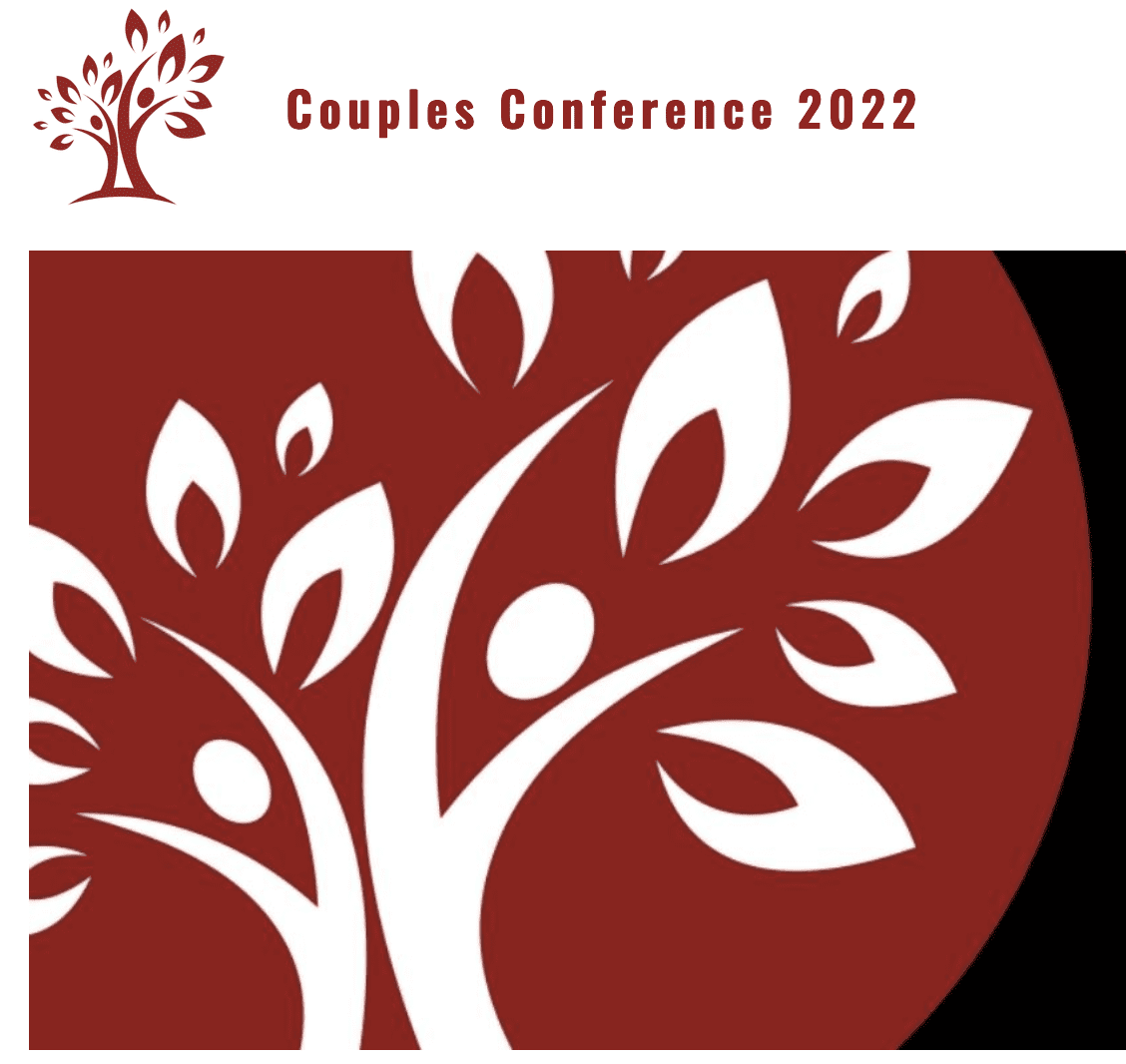In spite of the challenges of putting on another covid era conference, we had a stellar faculty of 10 discussing a wide variety of dynamic topics. Speakers covered everything from anxiety to sexuality – with gender, race and power also in the mix!
Participants were mostly online, with just a small group of about 30 people at the hotel. But we still felt the energy of being together, learning new things, and focusing on the importance of our work as couples therapists.
There were more presentations than I could attend – and far more presentations than I can describe here. But I’ll share a few tidbits from my talks and add some other learnings as well. I hope to convey some of the excitement and inspiration in the ideas we heard and shared.

William Doherty, PhD gave a keynote called “Common Factors and Best Practices that Characterize Effective Couples Therapy”
These best practices span across couples therapy models:
- Share airtime for both partners from one session to another.
- Prevent partners from interrupting each other.
- You do not allow “unmanaged aggression or hot” conflict to go on in front of you.
- Filter negatives through you; have partners communicate positives to each other.
- Challenge mindreading and pathologizing of each other.
- Find out if imminent divorce is on the table.
- Communicate hope.
I presented a workshop on “Developmental Thinking: How to Be a Skilled Couples Therapist”
Developmental thinking enables you to view couples’ struggles as part of the journey for psychological growth and wholeness – not as pathology or illness. So when you think developmentally you are focused on growth, not pathology.
5 Principles of Developmental Thinking
- Strong leadership is essential.
- Create individual autonomous goals.
- Set the stage for self-differentiation.
- Open clients to expressing their vulnerable thoughts, feelings, wishes and desires.
- Get each partner back in their own skin.
When you first meet with a couple, Developmental Thinking leads you to uncover:
- Where the couple is stuck?
- Where their development is arrested?
- What are the main sources of their pain, disappointment, and disillusionment?
- How they have hurt one another?
- How far off course they are from what you would expect based on their ages and the time they have been together?
Developmental Thinking illuminates your couples’ problems, since the problems are predictably based on…
- How long partners have been together
- The developmental stage of relationship
- Arrested development
- The chronic triggering of trauma that has gone un-repaired
Strong leadership is essential. And what does that mean?
- You know where to go.
- You manage sessions so they don’t get out of control.
- You step in and take charge.
- You insist they stop rehashing the fight of the week without a clear direction.
Perhaps the most important benefit of Developmental Thinking is this:
You make an enormous difference in people’s lives.
I participated in a panel discussion on “Lies and Deception” with Stan Tatkin, PsyD, MFT, and Ari Tuckman, PsyD, CST
I highlighted 4 types of conflict avoiding lies:
- Lies of omission
- Finessing the topic; when partners fear that the truth will cause a fight, they avoid and shy away from difficult topics
- Lies to self that some things – even important ones – don’t matter
- Hiding relevant details of a crucial situation when asked
Tammy Nelson, PhD gave a workshop on “The Future of Sex; What’s New?”
Sex is naturally a hot topic and this workshop was no exception. Here are a few memorable facts from the session.
Consensual non monogamy (CNM) is about as common as owning a cat. Research shows that 4 – 5% of Americans are involved in this type of arrangement at any given time and about one in five has engaged in some form of CNM in their lifetime. In other words, these relationships are more common than you likely think, and therapists need to know about working with CNM couples.
Skoliosexuality, sometimes spelled scoliosexuality, is the attraction to people who are transgender or nonbinary. This was a new term for me, and a reminder of the importance of always learning about ever changing cultural norms – and variations from the familiar.
Robosexuality, is on the rise. This is the term for mutual attraction or sexual relations between humans and robots, and oftentimes involves humans and robots of the same gender.
Gatebox, in Japan, is a communication device for living with virtual characters, including holographic, anime assistants and wives. A recent new product recognized as a solution for male loneliness sold out quickly.
Tinder, one of the current largest dating apps, has 50 million users and records 12 million matches per day! So apparently there’s still room in the world for dating.
The faculty for Couples Conference 2022 included: Ellyn Bader, PhD, Elliott Connie, MA, LPC, William Doherty, PhD, Martha Kauppi, MS, LMFT, Tammy Nelson, PhD, Sejal Patel, PsyD, Peter Pearson, PhD, Stan Tatkin, PsyD, MFT, Ari Tuckman, PsyD, CST, and Joseph Winn, MSW, LICSW, CST-S. Every single person delivered great information with a slightly different angle, for an overall program that was varied, rich, and deep.
Was any of this information new for you? As always, we enjoy reading your comments and seeing the discussions they sometimes generate.


 We respect your privacy.
We respect your privacy.



Thank you for this information!!
I am at a loss for words, to describe how sickening it is to see the promotion of sexual ideologies and agendas on an esteemed conference like this, in the name of “science.” I had much respect for this conference, but not any more. The complicity of the field of psychotherapy to the infiltration of such ideologies that promote the total destruction of ethics and morality in human relations, and now normalizing “transhumanism,” is unforgivable.
Who are you? I’d like to talk to you!! Hope you get this message!
I have come to the right place. The issues discussed at the conference were so important to my work as a couple therapist. Thanks for sharing this information.
I’m not impressed that being sexually attracted to trans and non-binary people is being framed as a separate sexuality. That’s called fetishization of trans and nonbinary people. Being attracted to trans/nonbinary people is normal, if you’re a straight woman attracted to a trans man, guess what? You’re still straight. This kind of publication harms trans and nonbinary people and gives credence to those who fetishize us.
Fetichize you? you think that just because someone names your preference is intended to that? Wow, I would call that narcicissm, but it could harm not your sex preference but your self esteem.
That’s a good point Emily. I can see how this type of labeling could be harmful.
thank you for sharing.
Excellent, generous and very useful summary! Thank you warmly!